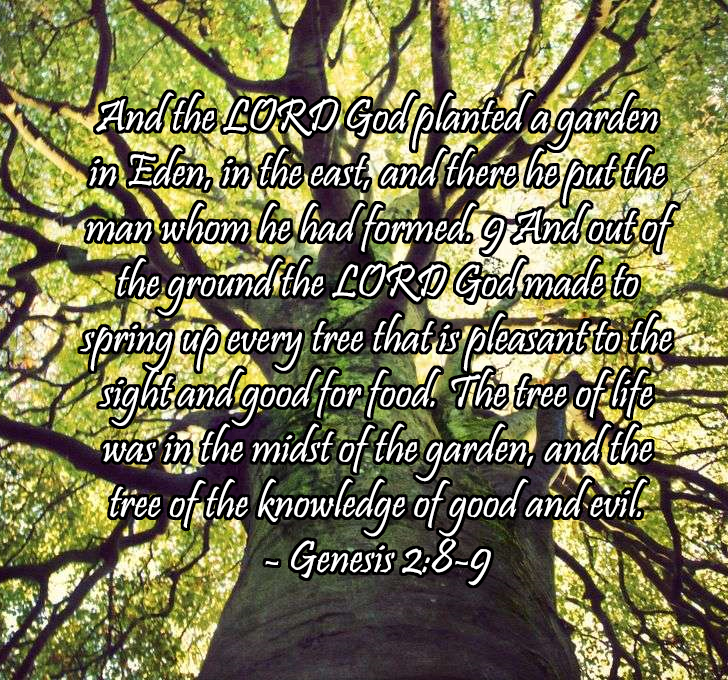
1 Thus the heavens and the earth were finished, and all the host of them. 2 And on the seventh day God finished his work that he had done, and he rested on the seventh day from all his work that he had done. 3 So God blessed the seventh day and made it holy, because on it God rested from all his work that he had done in creation.
After taking six days to create the universe, God rests, and blesses the seventh day. The blessing on the seventh day would later become the foundation for the Sabbath, and is why our calendars use seven day weeks. Throughout scripture seven will become a common number, marking completion. God’s rest on the seventh day should be considered an example for mankind: Work six days, rest the seventh.
4 These are the generations
of the heavens and the earth when they were created,
in the day that the LORD God made the earth and the heavens.
The entry to this passage is one of several “These are the generations of…” statements within the book of Genesis. This specific section is called the generations of creation. Here the narrative takes a turn. After seeing an overarching view of the creation of the universe in chapter 1, chapter 2 zooms in on part of the process, giving more details on the specific creation of Man.
At this point, the first mention of God’s name YHWH, rendered in this translation as “LORD” appears. This is God’s personal name, and chapter 2 uses this name for God readily in its description of God’s creation.
5 When no bush of the field was yet in the land and no small plant of the field had yet sprung up—for the LORD God had not caused it to rain on the land, and there was no man to work the ground, 6 and a mist was going up from the land and was watering the whole face of the ground—
At first this passage seems to contradict the previous chapter when God created plants before mankind. Now it says there were no plants of the field, because there was no man to work the ground. The phrase “of the field” is important, because there are differences between wild plants and cultivated plants. rather than contradicting the previous chapter, this passage is describing how the world was wild, and uncultivated before mankind came to tame it.
Also interesting is the mention of there not being any rain, but rather a mist coming up from the ground. In fact the Bible does not mention rain until the flood, suggesting that the first rainstorm was possibly during the flood, before then the ground was watered by a mist coming up from the earth. This mist may have helped protect mankind from the effects of aging, as the ages of individuals listed in Genesis drop dramatically after the flood.
7 then the LORD God formed the man of dust from the ground and breathed into his nostrils the breath of life, and the man became a living creature.
This again gives more detail to an event mentioned in the previous chapter, and highlights the importance of mankind. God had simply spoken the animals into being, but God crafted mankind, the word used for formed being different from the words used for create used previously. He also gave them the breath of life, or, as it also could be translated, spirit of life. Now at this section of the narrative, there is only one man, who we have come to know as Adam. Adam, in fact means “Man,” but is also similar to the word for “ground.” Man came from the ground.
8 And the LORD God planted a garden in Eden, in the east, and there he put the man whom he had formed. 9 And out of the ground the LORD God made to spring up every tree that is pleasant to the sight and good for food. The tree of life was in the midst of the garden, and the tree of the knowledge of good and evil.
The imagery of a garden is similar to many early near eastern descriptions of divine abodes, or places where people can go to meet with a god, similar to the Greek idea of Mount Olympus. However, rather than simply dwelling in the garden, God brings Adam in to work the garden, and cultivate it. It is not a home for God, but the intended home for Adam.
Two trees are specifically named, the Tree of Life, which has much spiritual significance throughout all of history (Adam was allowed to eat freely from this tree), and the Tree of the Knowledge of Good and Evil, which would be forbidden, for only God can define good and evil.
10 A river flowed out of Eden to water the garden, and there it divided and became four rivers. 11 The name of the first is the Pishon. It is the one that flowed around the whole land of Havilah, where there is gold. 12 And the gold of that land is good; bdellium and onyx stone are there. 13 The name of the second river is the Gihon. It is the one that flowed around the whole land of Cush. 14 And the name of the third river is the Tigris, which flows east of Assyria. And the fourth river is the Euphrates.
The detailing of the rivers flowing from Eden does little to help describe where the Garden was. Rivers do not tend to separate, only combine as they approach the sea. Two of the rivers apparently no longer exist, while the other two are quite infamous. While shifts in Geography during the flood could explain the disappearance of two rivers, it is unclear how or why the Tigris and Euphrates would remain even after the flood. Speculation suggests that the Garden could have been in one of many places, as it names the rivers flowing near well known areas. Some Jewish traditions state that perhaps the Garden existed in what is now modern day Israel, or more specifically, Jerusalem, helping give even more spiritual importance to that region. However this is just speculation and we do not know for sure.
15 The LORD God took the man and put him in the garden of Eden to work it and keep it.
Adam is not just given a home in Eden, he is commanded to work and cultivate Eden. Part of being a man is work, he didn’t simply sit around in paradise, he had a job and a purpose.
16 And the LORD God commanded the man, saying, “You may surely eat of every tree of the garden, 17 but of the tree of the knowledge of good and evil you shall not eat, for in the day that you eat of it you shall surely die.”
The question arises as to why God even created the Tree of Knowledge of Good and Evil if He were simply to forbid mankind from eating its fruit. There are a couple answers to this, one is that it allows mankind to choose to follow God. He does not force us to worship Him. He wants us to choose to worship Him. It gives us free will. The second answer is that perhaps, in time, God would have dropped the restriction on the Tree of Knowledge when mankind was ready for it. This second answer is mere speculation, and there is little support for such a view, and paints Adam and Eve simply as jumping the gun, so to speak, rather than outright rebelling against God.
18 Then the LORD God said, “It is not good that the man should be alone; I will make him a helper fit for him.” 19 Now out of the ground the LORD God had formed every beast of the field and every bird of the heavens and brought them to the man to see what he would call them. And whatever the man called every living creature, that was its name. 20 The man gave names to all livestock and to the birds of the heavens and to every beast of the field. But for Adam there was not found a helper fit for him.
Man was never meant to be alone. God had previously created the animals “male and female,” but up to this point Adam was the only human. While some of the animals could be considered “helpers” – Cattle, horses, dogs, etc. none were equal to Adam, non could be a suitable companion. God allows Adam to name the animals as a sign of authority over them, as the giving of names is almost always done by an authority.
21 So the LORD God caused a deep sleep to fall upon the man, and while he slept took one of his ribs and closed up its place with flesh. 22 And the rib that the LORD God had taken from the man he made into a woman and brought her to the man. 23 Then the man said,
“This at last is bone of my bones
and flesh of my flesh;
she shall be called Woman,
because she was taken out of Man.”
24 Therefore a man shall leave his father and his mother and hold fast to his wife, and they shall become one flesh.
The creation of woman is special. God caused the land to produce animals, and God formed man from the earth, but woman was created from the side of man. Jewish tradition says that until this point Adam was neither male nor female, but with the creation of woman so came the differences between the sexes. The woman, who will later be named Eve, was taken from Adam, and thus completes Adam again. The relationship between the two is likened to becoming one with each other, and is the closest relationship mankind can experience, the closest physical example to the Trinity. Now Adam names Eve, but unlike the animals where he was simply giving them names to exercise authority over them, he names Eve based off of what she is: woman – or from man. He sees her as his companion, an equal.
Notice again the poetic structure in verse 23. The first time we saw poetic structure like this was illustrating God’s relationship to mankind in chapter 1, here it defines man’s relationship to woman.
25 And the man and his wife were both naked and were not ashamed.
The relationship between Adam and Eve is one where that is so wholesome that there are no vulnerabilities, or shame, between them. They can be completely open with each other and with God. Later, we will see an interesting play on words as the serpent’s “craftiness,” Hebrew – arum, reveals mankind’s “nakedness,” Hebrew – arom. In the next chapter the relationship between Adam and Eve will change from wholesome innocence, to one that is broken and ashamed.
